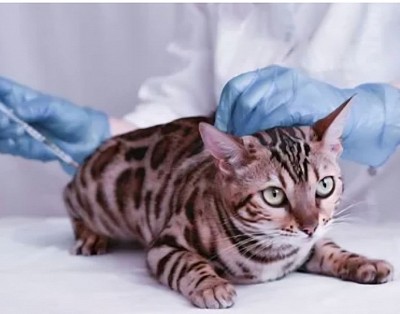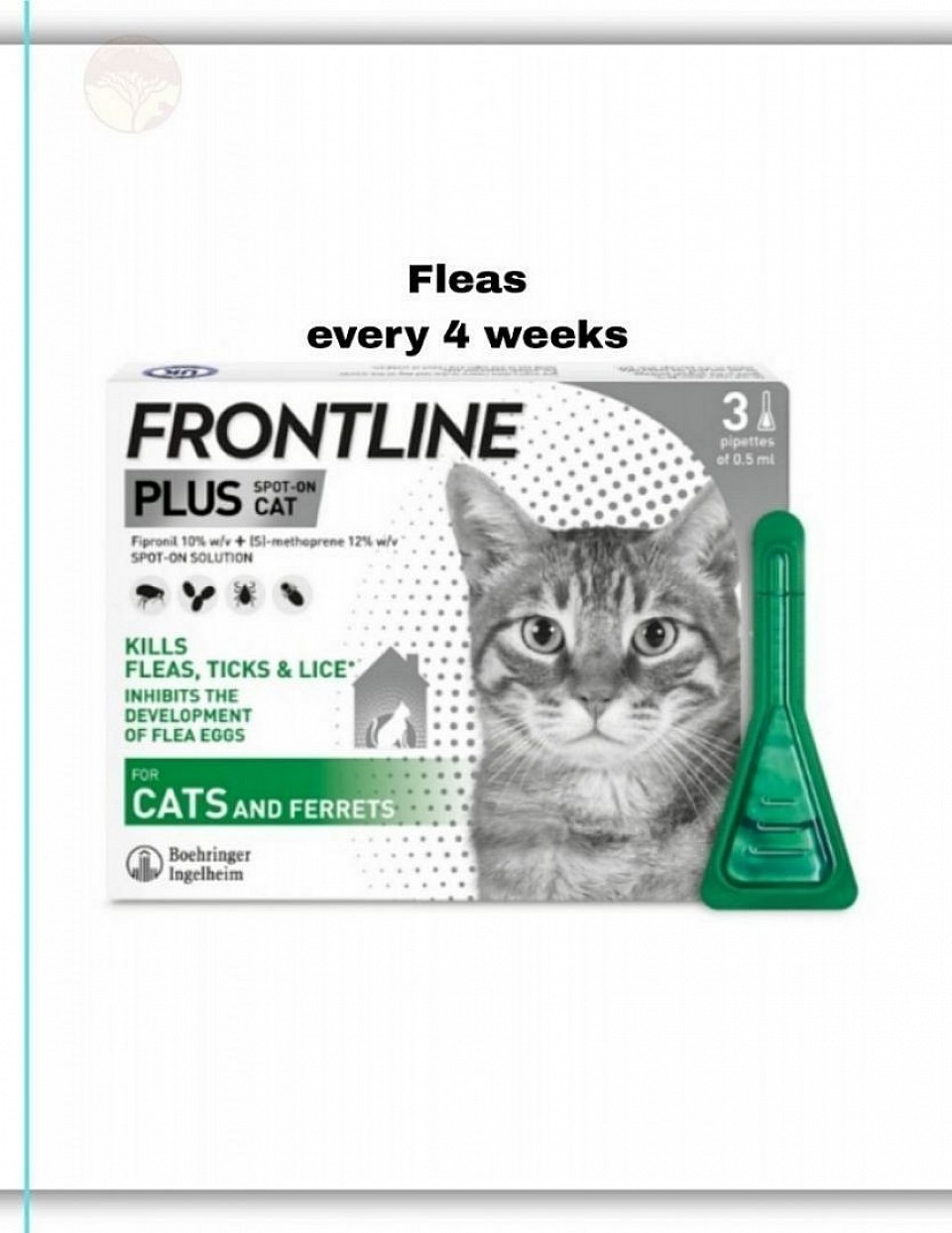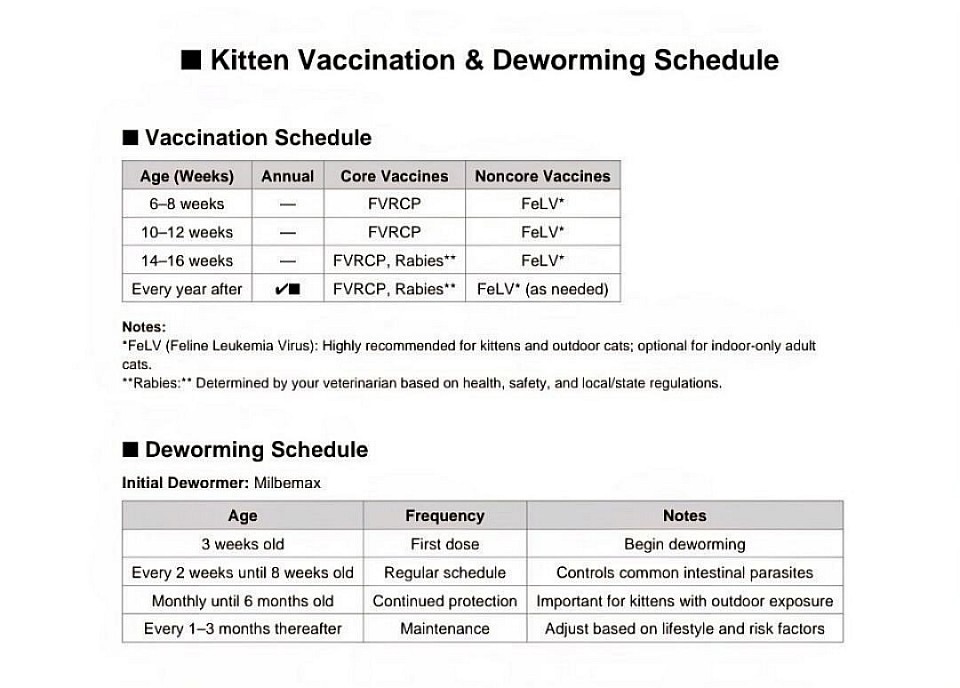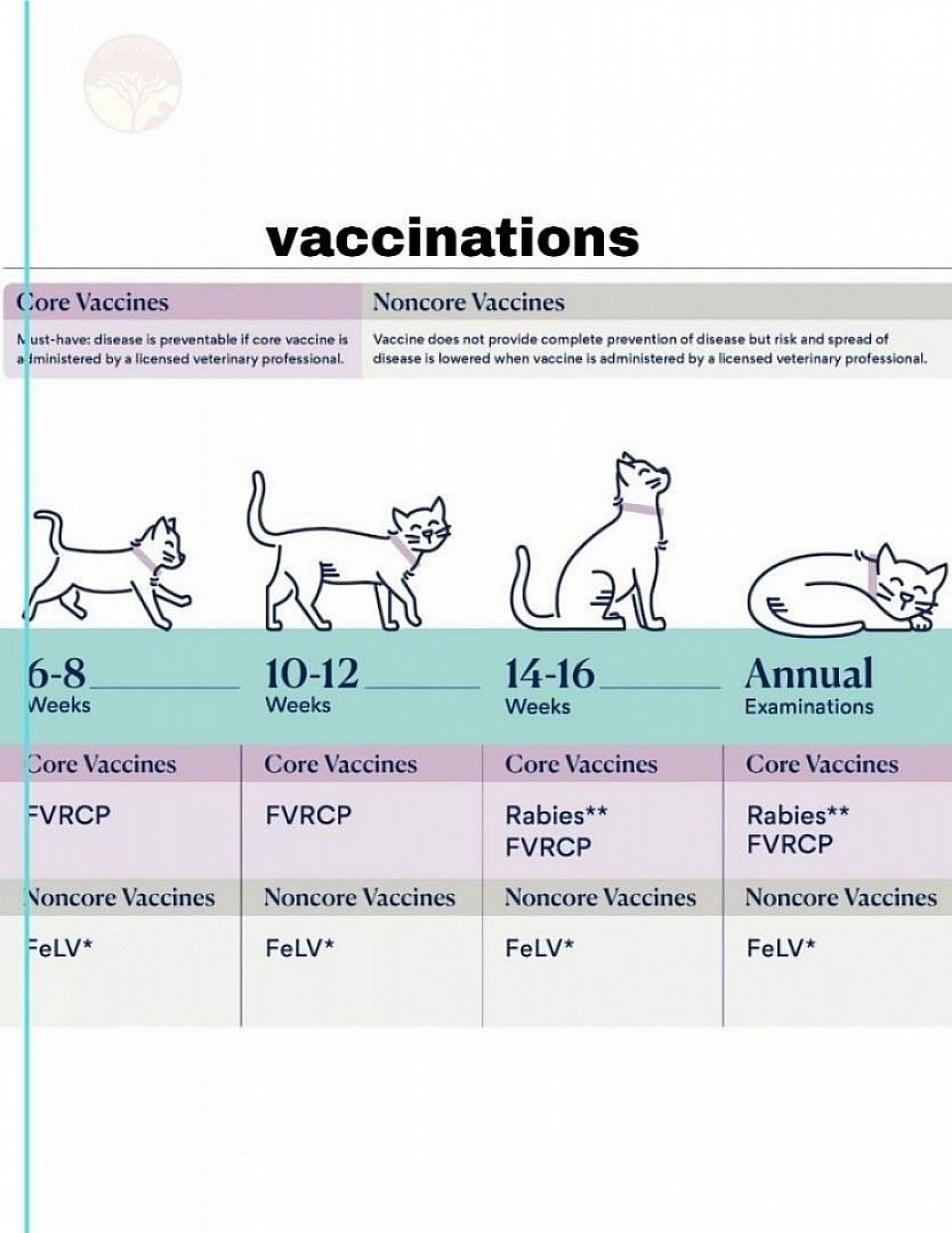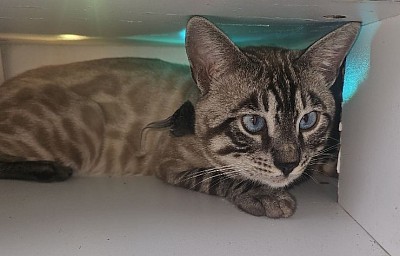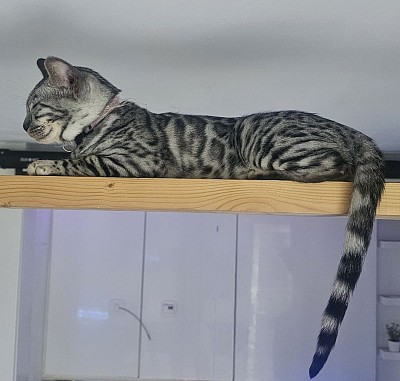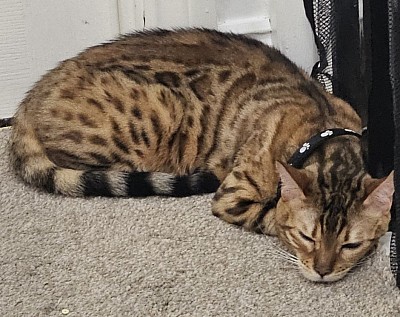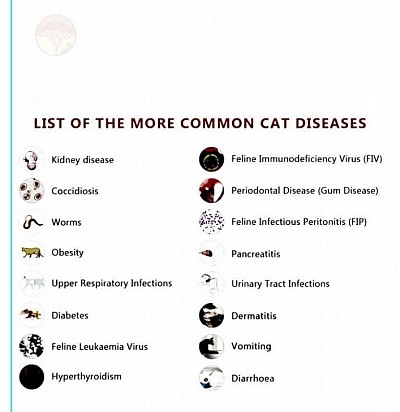Vaccinations
vaccinations
Cats need vaccinations to protect them from several serious and potentially deadly diseases. The core vaccines, which are recommended for all cats, include those for feline panleukopenia, feline herpesvirus, feline calicivirus, and rabies. The feline leukaemia virus (FeLV) vaccine is essential for kittens and young cats. Additionally, non-core vaccines, such as those for Bordetella and Chlamydia, may be recommended depending on a cat’s lifestyle and risk factors.
Vaccinations
vaccinations
vaccinations
In the UK, core cat vaccinations help protect your feline friend against feline herpesvirus, calicivirus, and panleukopenia. These vaccines are recommended for all cats, even those who stay indoors, since these viruses can hitch a ride into your home on clothes or shoes. Usually, the full vaccination course starts with initial shots as a kitten, followed by regular boosters.
Core vaccinations
Here are the essential vaccines for all cats in the UK:
Feline Herpesvirus (FHV) and Feline Calicivirus (FCV): These two are the main culprits behind "cat flu," causing respiratory issues and mouth ulcers.
Feline Panleukopenia Virus (FPV): Also called feline infectious enteritis, this highly contagious and often deadly virus attacks the digestive and immune systems.
Non-core vaccinations
Depending on your cat’s lifestyle and exposure risk, your vet might suggest some extra non-core vaccines.
Feline Leukaemia Virus (FeLV): This one’s especially important for outdoor cats or those living with other cats, as it spreads through fighting and grooming.
Rabies: Needed only if your cat is travelling outside the UK; otherwise, it’s not necessary.
Chlamydophila felis: This bacterium causes conjunctivitis and is usually recommended for cats in multi-cat homes or catteries where the infection has been spotted.
Vaccination schedule
A typical vaccination timeline in the UK looks like this:
Kittens: The initial course usually involves two injections spaced 3 to 4 weeks apart, starting at about 9 weeks old.
Adults: After the kitten course, cats get their first annual booster a year later. After that, how often boosters are needed depends on the vaccine, but core vaccines are often given every 1 to 3 years.
Side effects and cost
Vaccinations are safe and routine, but your cat might experience some mild side effects.
Common side effects: Your cat might feel a bit tired, eat less, or have a slight fever. You might also notice some swelling where the shot was given. These usually go away within 1 to 2 days.
Rare side effects: Serious allergic reactions are very uncommon, but if your cat has seizures, trouble breathing, or collapses, contact your vet right away.
Average costs (UK):
Kitten course: £60–£100.
Annual booster (core only): £40–£60.
Booster with FeLV: £60–£100.
Rabies: £40–£60.
Important things to keep in mind
Talk to your vet: Always chat with your vet about your cat’s specific vaccination needs and schedule—they’ll tailor it based on your cat’s age, health, and lifestyle.
Boarding: Most UK catteries require all cats to have up-to-date vaccinations before staying.
Pet insurance: Routine vaccinations usually aren’t covered by pet insurance, but keeping them current can help lower your premiums.
Deworming Protocol and Schedule for Kittens and Cats
If a kitten is diagnosed with worms, it constitutes a serious health concern that necessitates prompt veterinary intervention and appropriate medication. Worms can be transmitted through the mother's milk, resulting in nearly all kittens being infected from birth.
Common types of worms in kittens
Roundworms: The most prevalent intestinal parasite in kittens, transmitted via the mother's milk or environmental exposure. These worms are long, white, and may resemble spaghetti in the kitten’s faeces.
Tapeworms: These flat, ribbon-like parasites are contracted when a kitten ingests an infected flea during grooming or consumes an infected rodent. Tapeworm segments, resembling grains of rice, may be visible in the kitten’s stool or around the anus.
Hookworms: Small, blood-feeding parasites transmitted through contaminated soil or water, capable of causing severe conditions such as anaemia.
Signs and symptoms of worm infestation
While some kittens may exhibit no external symptoms, heavy infestations often present with noticeable signs. If any of the following symptoms are observed, immediate veterinary consultation is advised:
- Pot-bellied appearance: A swollen or distended abdomen is a classic indicator of a significant worm burden, particularly in young kittens.
- Diarrhoea or vomiting: Gastrointestinal upset caused by worms may include visible worms or segments in faeces or vomit.
- Weight loss or increased appetite: Nutrient depletion by worms can lead to weight loss despite an increased appetite.
- Dull coat: Poor nutrient absorption may result in a coarse or dry fur coat.
- Scooting: Dragging the hindquarters along the ground may indicate anal irritation or itching.
- Visible worms or segments: The Presence of worm segments, resembling rice grains, around the anus, bedding, or faeces is a definitive sign of tapeworm infestation.
Treatment and prevention
Veterinary evaluation: If worm infestation is suspected, a veterinarian should confirm the diagnosis through faecal examination and prescribe an appropriate treatment regimen. The use of unapproved “natural” remedies is discouraged due to their ineffectiveness and potential harm.
Deworming schedule: Kittens require more frequent deworming than adult cats. A typical protocol includes:
- Initiation at 3 weeks of age, followed by treatments every 2 weeks until 8 weeks old.
- Monthly treatments until 6 months of age.
- Subsequent treatments every 1 to 3 months, depending on lifestyle and exposure risk.
Deworming products: Veterinarians can recommend the safest and most effective broad-spectrum anthelmintics, available in forms such as tablets, liquids, pastes, or topical spot-on treatments. While some over-the-counter options exist, prescription medications generally offer superior efficacy.
Preventing reinfection: Maintain kitten health by regularly cleaning litter boxes and ensuring all pets participate in comprehensive flea and worm prevention programs, as fleas serve as vectors for tapeworm eggs.
Cat Flea Infestations (Ctenocephalides felis)
Cat fleas (Ctenocephalides felis) are prevalent parasites that can cause significant discomfort and health issues for cats, as well as infest residential environments. Even indoor cats remain susceptible to flea infestations, as fleas can be inadvertently brought indoors via clothing or other pets.
Indicators of a flea infestation
Fleas are minute, dark-colored, and swift-moving, making them difficult to detect. However, the following signs may indicate their presence:
- Excessive scratching, biting, or licking, particularly around the neck, head, and base of the tail.
- Flea dirt: small black specks of digested blood left by fleas. To verify, place the specks on a damp paper towel; if they are flea dirt, they will dissolve into a reddish-brown stain.
- Hair loss: thinning fur or bald patches resulting from persistent scratching and grooming.
- Skin irritation: flea bites can cause redness and inflammation; cats with flea allergies may develop severe scabbing.
- Pale gums and lethargy: severe infestations can lead to anaemia due to blood loss, especially in kittens, necessitating immediate veterinary care.
- Tapeworms: Fleas can transmit tapeworm larvae; ingestion of infected fleas during grooming can result in tapeworm infestation, often evidenced by rice-like segments near the cat’s anus.
- Human bites: unexplained, itchy, red bites on human ankles and legs may indicate a household flea infestation.
Flea habitat and reproduction
While adult fleas reside on the cat, the majority of the infestation exists within the home. Understanding the flea life cycle is essential for effective eradication:
- Eggs: Female fleas lay up to 50 eggs daily, which fall off the host into the environment.
- Larvae: These hatch from eggs and migrate away from light, burrowing into carpets, furniture, and floor crevices, feeding on flea dirt and organic debris.
- Pupae: Larvae spin cocoons and develop into pupae, a stage resistant to insecticides that can remain dormant for months until a host is detected.
Flea treatment and prevention
An effective treatment strategy addresses both the cat and its environment. Consultation with a veterinarian is imperative to select the safest and most efficacious products.
Treating your cat:
- Veterinary-recommended products: These are superior to over-the-counter options and include oral medications (pills or chews) and topical spot-on treatments.
- Label adherence: Use only products specifically formulated for cats, as dog treatments often contain permethrin, which is highly toxic to felines.
- Avoid home remedies: Essential oils, powders, and natural remedies are generally ineffective and may pose toxicity risks.
Treating your home:
- Vacuuming: Thoroughly vacuum carpets, floors, and upholstered furniture frequently. Dispose of vacuum bags immediately in sealed bags outside to prevent re-infestation.
- Washing: Launder all pet bedding, blankets, and washable soft furnishings in hot water.
- Household sprays: Utilise insecticide sprays containing insect growth regulators (IGRs) to target flea eggs and larvae. Follow all usage instructions carefully and keep cats away from treated areas.
- Persistent infestations: If fleas persist beyond several weeks, seek assistance from a professional pest control service.
Common Feline Diseases and Health Conditions
Feline Calicivirus. A highly contagious virus that primarily affects the respiratory tract, oral cavity, and oesophagus. It is especially common in shelters and breeding colonies.
Feline Leukaemia. A transmissible virus that spreads among cats through contact with infected individuals.
Cancer. A leading cause of mortality in cats, particularly in older felines. Although it can occur at any age, it is most frequently diagnosed in middle-aged to senior cats.
Dental Disease. The most prevalent condition in cats, affecting up to 70% of felines over three years of age.
Intestinal Parasite Infection. A common health issue in cats, with prevalence rates reaching up to 45%.
Kidney Disease. A primary cause of death in cats, especially among older individuals.
Fleas. External parasites that infest cats, causing skin irritation, hair loss, and anaemia.
Feline Lower Urinary Tract Disease. Affects the lower urinary tract, including the bladder and urethra.
Obesity. One of the most prevalent and serious health concerns in cats, contributing to secondary conditions such as arthritis, diabetes, cardiovascular disease, and hepatic disorders.
Upper Respiratory Infection. A common illness affecting cats of all ages, caused by various viral and bacterial agents.
Heartworm. Although less common than in dogs, heartworm remains a significant health risk for cats.
Rabies. A serious and often fatal viral disease, with cats frequently serving as carriers.
Ringworm. A fungal infection that affects the skin, hair, and nails.
Feline Diabetes. Characterised by the inability to produce or effectively utilise insulin, the hormone responsible for regulating blood glucose levels.
Feline Hyperthyroidism. A common endocrine disorder in older cats, resulting in excessive production of thyroid hormones.
Urinary Tract Infection. Occurs when bacteria ascend the urethra and infect the bladder.
Cat Flu. A frequent upper respiratory illness caused by feline herpesvirus or feline calicivirus.
Feline Infectious Peritonitis. A severe viral disease affecting the lining of the thoracic and/or abdominal cavities.
Feline Upper Respiratory Infections. Common conditions involving the nose, throat, and sinuses, caused by various viruses and bacteria.
Feline Hyperaldosteronism. The most prevalent adrenocortical disorder in cats, caused by excessive secretion of aldosterone, a mineralocorticoid steroid hormone.
Allergies. A widespread condition affecting cats of all ages and breeds.
Arthritis. A degenerative joint disease causing pain and inflammation, particularly common in cats aged 12 years and older.

